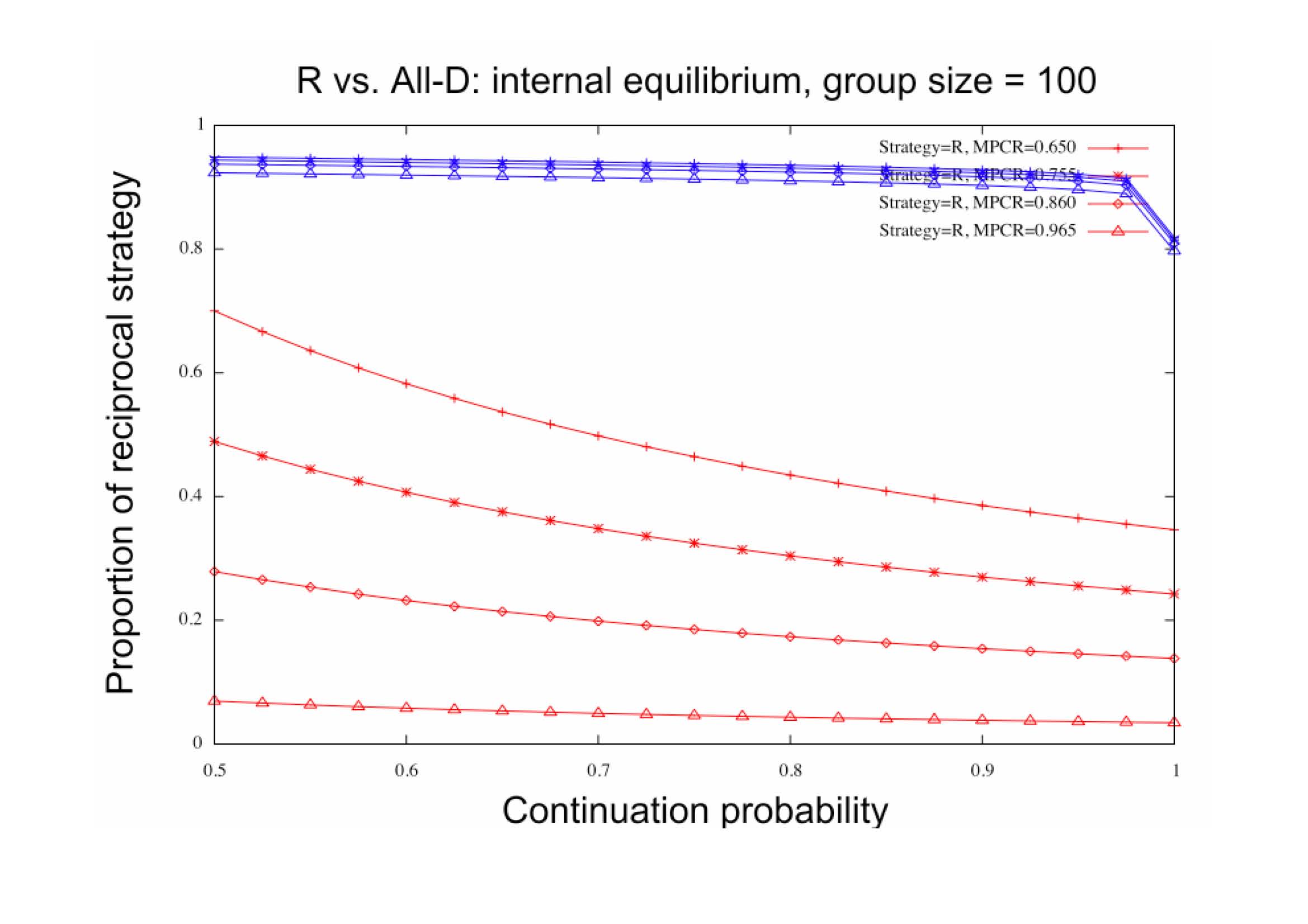

Masanori Takezawa
(Tilburg University)
Revisiting 'The evolution of reciprcity in sizable groups'


Reciprocity has been widely accepted as the most likely explanation for the evolution of cooperation. Contrary to this widespread belief, Boyd & Richerson (1988) revealed that reciprocity cannot be an explanation of cooperation in repeated n-person prisoner's dilemma game. In this talk, we will show that their argument is premature and just one modification, replacing trigger strategy with linear response strategy, significantly changes the results. Our mathematical model and numerical analysis revealed that, when individuals continuously adjust their level of cooperation in response to the average contributions made by the other group members, the size of basin of attraction for reciprocal cooperators gets much larger and let reciprocal cooperation be more likely to evolve even when group size is pretty large (e.g., n>100) and groups are randomly formed.